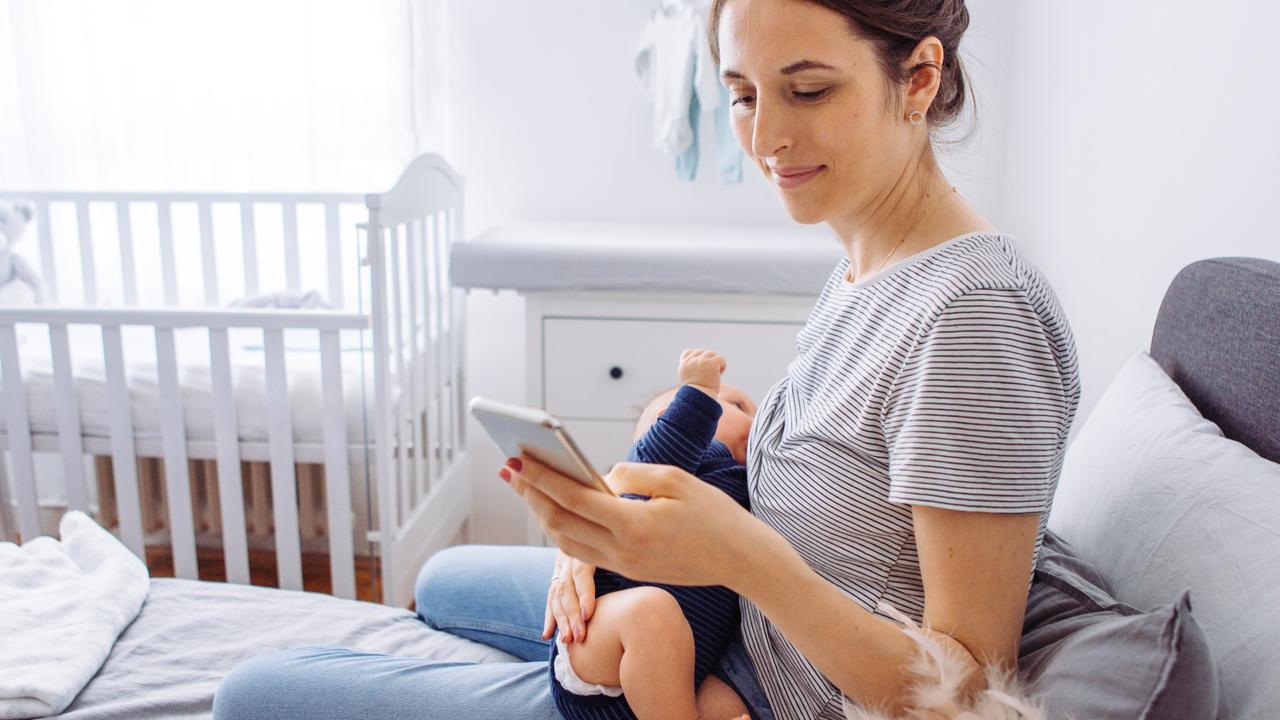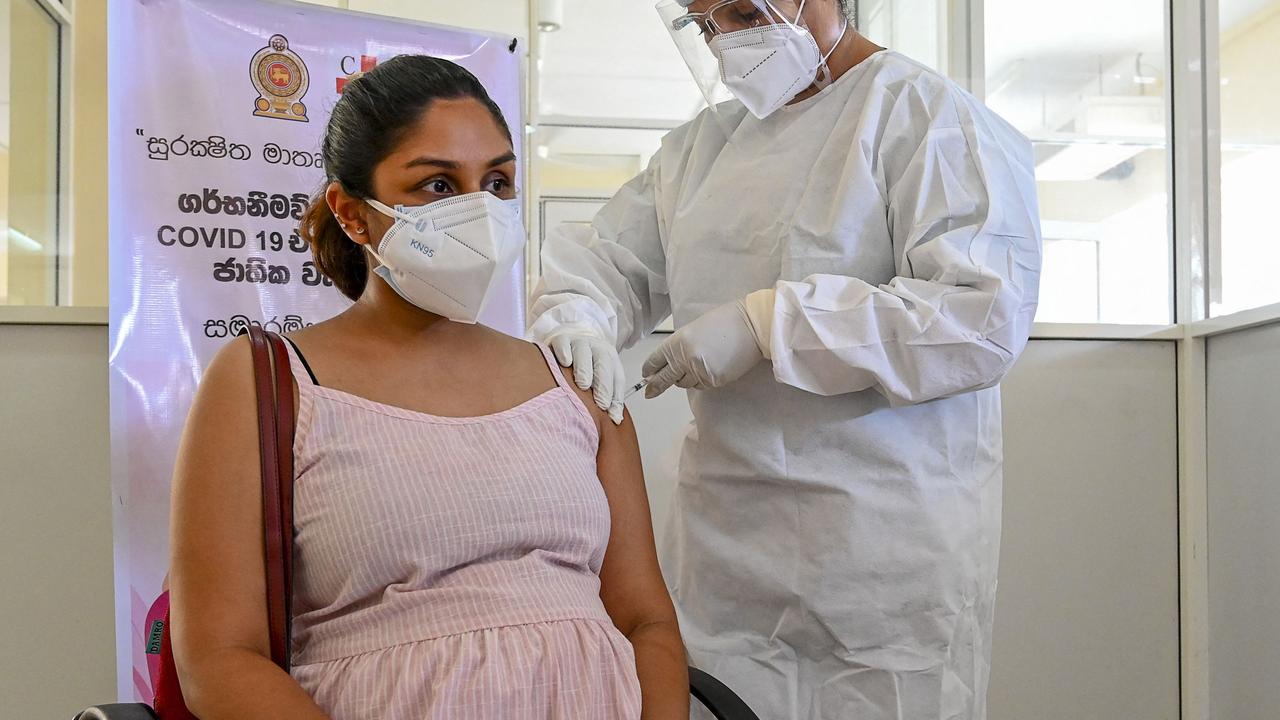Updated Covid-19 vaccine advice for pregnant women and other questions answered
Find out more about updated vaccine advice for pregnant women and answers to other reader questions, including the safety of mix-and-match jabs.
As Australia’s vaccine rollout accelerates and more people become eligible to get the jab, many people have questions after safety for particular groups and whether they should wait.
Many news.com.au readers wanted to know about whether women who were looking to get pregnant, already pregnant or breastfeeding, should get the jab.
Others were interested in whether they could mix-and-match vaccines and whether they were effective against variants such as the Delta strain that has emerged in Melbourne.
Infectious diseases expert Professor Peter Collignon of Australian National University has answered the questions below.
I’m eligible to have the Pfizer vaccine shortly and just had a baby (and breastfeeding). Could you please clarify what the position is on breastfeeding women and why it is considered safe?
Prof Collignon said he would have no hesitation in recommending breastfeeding women who were at higher risk of getting more severely ill from Covid-19 – such as those who have diabetes or are overweight – from getting vaccinated.
“The Pfizer vaccine in particular is not a live vaccine and so there is no reason to think any virus would get into the breastmilk,” he said.
“I would just go ahead and get vaccinated. I can’t even see any theoretical reason to say there’s a problem,” he said.
This is unlike the vaccine for yellow fever, which is not recommended for pregnant women because it is a live vaccine.
However, for other women in their 20s and 30s with no risk factors, Prof Collignon would not push them to get the vaccine yet only because there are higher priority groups, such as the elderly or frontline workers, who should get vaccinated first.
“If you are a 40-year-old who might get pregnant or are breastfeeding, you are at more risk of getting complications from Covid than a 20-year-old,” he said.
You can access a government decision guide for women who are pregnant, breastfeeding or considering pregnancy here.
RELATED: What’s in the vaccine? And other questions answered

My partner and I are planning a second child. Is it safe to get while pregnant?
The Royal Australian and New Zealand College of Obstetricians and Gynaecologists (RANZCOG) and Australian Technical Advisory Group on Immunisation released a new advisory this week that pregnant women are routinely offered the Pfizer vaccine at any stage of pregnancy.
“This is because the risk of severe outcomes from Covid-19 is significantly higher for pregnant women and their unborn baby,” a joint statement explained.
The authorities noted that global surveillance data from large numbers of pregnant women had not identified any significant safety concerns with mRNA vaccines such as Pfizer given at any stage of pregnancy.
“Furthermore, there is also evidence of antibody in cord blood and breastmilk, which may offer protection to infants through passive immunity,” the statement said.
“Pregnant women are encouraged to discuss the decision in relation to timing of vaccination with their health professional.”
Prof Collignon said while there was not a large amount of data available around the safety of pregnant women getting vaccinated, this needed to be weighed up against the fact they were more likely to experience complications if they did get Covid.
Pregnant women are three times more likely to be admitted to an intensive care unit if they get coronavirus, compared with women of the same age who are not pregnant.
They are also three times more likely to need invasive ventilation, such as breathing life support.
Prof Collignon said it was not unreasonable for women to want to wait until more data was available, especially as there was not much Covid in Australia at the moment, but what data they did have indicated the vaccine was safe.
“What data we have available says it’s not a problem, it’s just not based on many pregnant women,” he said.
However, he said would advise those in higher risk categories, such as healthcare or quarantine workers, to get vaccinated because their risk of contracting the disease was higher.
People with risk factors such as diabetes or who were overweight, should also consider getting vaccinated due to the higher risk of complications.
RELATED: Can I go overseas if I get the jab? And other questions answered

I am a woman in my 30s, yet to have children but am considering it. Would the vaccine cause any issues in pregnancies later on or foetal development? How much research has been conducted around this?
The RANZCOG and ATAGI updated advisory also said that women who are trying to become pregnant do not need to delay vaccination using the Pfizer vaccine or to avoid becoming pregnant after vaccination.
Prof Collignon said he wouldn’t routinely recommend women to get the Pfizer prior to pregnancy but he wouldn’t advise against it either.
“I think this one is an individual decision. There is no data that it causes harm during pregnancy but the data is not very extensive.”
I have had the first jab of AstraZeneca but I am worried whether the vaccine is strong enough to combat the other strains of Covid?
Prof Collignon said the short answer is authorities don’t know definitively whether the AstraZeneca vaccine is effective at combating other strains of the virus because there is not enough data.
However, real world data from the UK suggests that AstraZeneca and Pfizer do work against the Alpha (UK strain) and even the Delta strain that has now emerged in Melbourne.
“At the moment the answer is yes but we have to get more data and wait and see,” Prof Collignon said.
While the vaccine may not be quite as effective against the Delta strain, data so far indicates it still does provide some protection.
Prof Collignon pointed out there were fears initially the AstraZeneca vaccine would not work against the Alpha strain but it does look to have been effective.
“When there are new strains it takes a while to get sufficient data to answer the question but it looks like you get at least partial protection, and as new data emerges, the protection is usually better than what people initially think it will be.”
Is it possible and safe to be vaccinated with more than one type of vaccine? If so, how soon after receiving the second dose of the AstraZeneca vaccine can I get a Pfizer injection?
Prof Collignon said there was data about mixing and matching vaccines from Spain and England, where people have got AstraZeneca for their first dose and then Pfizer for their second dose.
So far it has proved to be safe and appears to provide equal protection compared to if the person had got the same vaccine for both doses. However, people may experience more side effects such as fever, aches and pains.
“They seem to have more side effects if they mix-and-match but no increased serious complications,” Prof Collignon said.
“If you have to (mix-and-match) it’s fine to do but you may feel more unwell the day after.”
If someone does want to get a Pfizer vaccine after getting AstraZeneca as their first dose, Prof Collignon can’t see why they should wait any longer than three to four weeks.
But he doesn’t think there’s any point in getting vaccinated with Pfizer if they have already had their second dose of AstraZeneca as there’s no convincing evidence of benefits, including that it protects more against variants.
“I don’t think anyone should line up for a third dose yet, we don’t have any data to justify that,” he said.
Can my booster shot be a different brand than my original AstraZeneca?
Prof Collignon said it did look as if people could have a different booster shot after getting the AstraZeneca jab but there was no evidence yet that this was needed.
“So far there is no evidence that if you have two doses (of AstraZeneca) that you won’t have ongoing protection in six to 12 months time,” he said.
“If you are fully vaccinated with AstraZeneca there’s probably no point in getting revaccinated in under a year.”
Prof Collignon said there was not enough real world data to answer questions around whether a booster shot was needed or when it would be needed.
“We’ll be wiser in a year’s time.”




